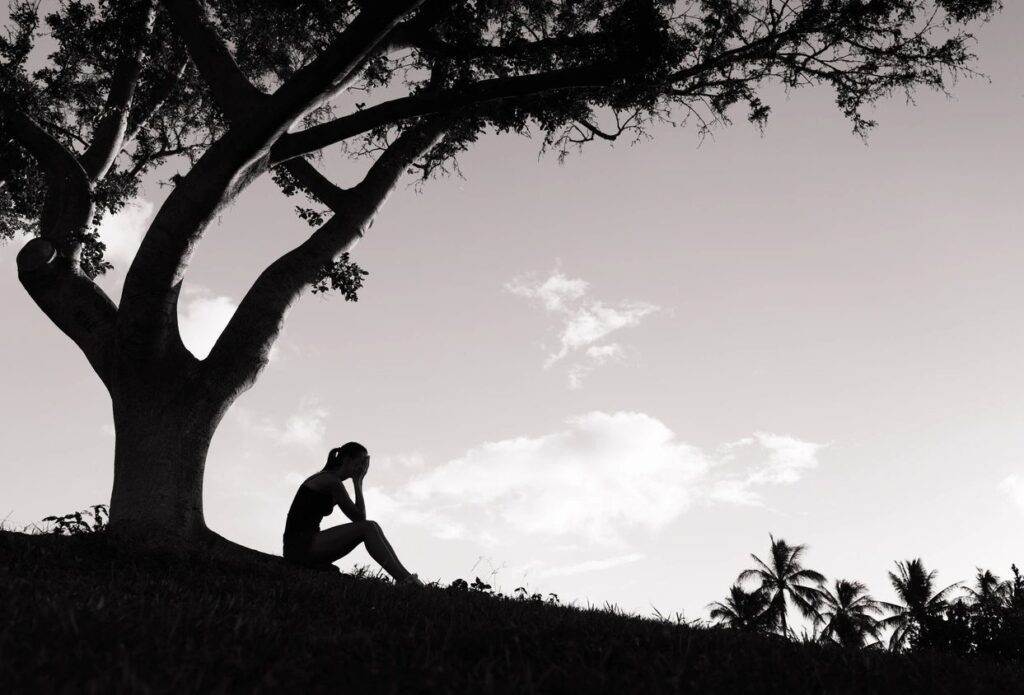Why do we do this to ourselves? The endless cycle of shame and blame. The “tough love” approach we were taught would motivate us to do better and show the world we care. I know that’s the way I was raised. If I didn’t beat myself up for a mistake, I didn’t care enough and/or I wasn’t trying hard enough. All that did was discourage me from trying things I thought would be difficult and that I was likely to fail at. Which was a lot of things. That fear kept me small. There were so many things I wanted to do with my life, but I was so afraid of the pain and perceived judgment if I failed, that I just didn’t try anything big.
Nothing kept me more stuck in the alcohol trap than that same fear of failure and cycle of shame and blame. Trying to quit drinking was terrifying to me, because I knew that it would be hard and that there was a high likelihood that I would fail. Because of what I knew about addiction, from my experience growing up and my studies in college, I understood that relapse was equivalent to failure. It wasn’t necessarily said out loud, but it was implied. Whenever someone showed up and admitted they’d used, the energy would change to disappointment and disapproval and the person’s head would hang in shame. That’s if anyone was even brave enough to speak their truth and own that they’d had a drink or used.
The disappointment was palpable, and whether intended or not, the person always looked so defeated and ashamed. To be fair, in most cases the person was then showered with support and encouragement. But there was no undoing what was done and thus you must start over at day 1 and work the steps again. For many people, this repeated chipping away at their self-worth was unbearable. I believe, and I’ve been told as much, that this is a common reason that people feel that 12-step programs won’t work for them. We already feel worthless enough as it is, so to feel that from others and knowing that it was likely to happen, can be a deal breaker. To undo all the work we’d done, because we made one mistake, was adding insult to injury.
This was what I imagined would be my fate if I tried and failed to quit drinking. Even if I didn’t go to AA or any other treatment program, I was going to shame myself based on what I’d learned. For me, that was crippling. I had spent my entire life trying to validate my worth through other people’s eyes, so if the world viewed relapse as failure that would surely damage my self-worth even further. That’s also one big reason why I couldn’t ask for help. I couldn’t tell anyone that I was struggling. It was one thing for me to know I was a failure, but for other people to be watching me fail, that was unbearable.

I managed to push through that fear long enough to attempt to quit. Or, if I’m being honest, the pain of where I was in my drinking was stronger than the fear I had of failing. Finding Annie Grace and This Naked Mind actually gave me hope and made me consider that maybe I didn’t have to buy into all the old methods of quitting drinking. Maybe there was another, better way. Given what I’d seen, I figured it was worth a try. But I found it really hard to disconnect from those old ways of thinking.
When I made it to day 10 on my first attempt to quit, I was thrilled and overconfident. I hadn’t gone a single day without drinking before that, for at least 4 years. 10 days gave me a false sense of security. I thought that I’d be fine, until my brain had a melt down and sent me into a massive panic attack out of nowhere. I wasn’t even thinking about drinking when it happened, but when that panic attack hit, I knew the only thing that would make me feel better was a drink.
So, I had my first “data point” as we call it at This Naked Mind. Only, those old beliefs wouldn’t allow me to embrace the idea of a data point. Instead, I had thoughts of: “What a fool you are, to think you could do this.” And “You’re just using the data point as an excuse.” “You’re not trying hard enough.” “When is enough, enough?” So, I spent the entire weekend in a numb and miserable state. Mother’s Day 2019 was a new low for me. I was drunk the entire day, sneaking gulps of whiskey when no one was looking and in and out of consciousness on the couch. I was disgusted with myself and I thought I deserved to feel that way.
Looking back at it now, I know it was that negative self-talk and the idea that I had to start all over again that was what sent me back down into the bottle. If I had been able to embrace the idea of a data point, I could have recognized that the panic attack I had was just my brain’s way of throwing a temper tantrum to give it the addictive substance it wanted. Our brains use all sorts of tricks to get us to give it what we’ve trained it to want. When we decide we don’t want it anymore, consciously, our subconscious brain doesn’t get that memo so easily. There is science to back this up, but I won’t get into that here. But if I’d been able to stay out of that shame cycle, I might have gotten curious about why I had that panic attack in the first place. And then I would have learned from it and moved on. Not starting back at day 1, but just day 10 minus 1 data point. I think then I would not have spent the rest of that weekend wallowing in self-pity and self-loathing.
So, this is why I think Day 1’s cause more harm than good. It’s important to note that the concept of data points can be misused. I definitely found myself there too. When I saw someone else having a data point and the thought, “Oh, see, I can just have a data point” and went and had myself a drink. And then recognized that manipulative tactic and used that to beat myself up and tell myself I was a worthless excuse for a human. Accept, I don’t look at it that way now. I didn’t know what I didn’t know. My subconscious used another trick to manipulate me to give it the addictive substance it was looking for. But that doesn’t mean I’m manipulative by nature. Which was the weapon I used against myself. You do have to be mindful and accountable to yourself. Recognize when you’re using the data point as an excuse to drink, but don’t beat yourself up to the point that you go back down that rabbit hole. Learn from the experience and move on. Recognize that our brains are capable of some pretty manipulative behaviors, but that’s because of the substance. Our brain’s are hardwired to seek pleasure and avoid pain, at all costs. Alcohol gives us an unnaturally high hit of dopamine (aka pleasure) and our brain will do what it can to get that hit over and over. Additionally, the pain of starting over is so powerful for many of us, that it sends us back to the alcohol to avoid that pain. And it’s even worse with other substances, like cocaine or heroin. Does that mean that knowing this gives us a pass? No. But it helps me understand what is happening and empowers me to choose a different path. Once I realized this, I made conscious choices and took my power back. Alcohol no longer has any power over me. My brain might still chime in with, “oh, look there’s that thing that used to feel good. Give me some of that!” And my immediate and conscious response is, “nope, totally not worth it!” It’s not even a fight. I understand that it’s a primitive function of my brain and I have a choice to follow along or not. That makes me feel powerful. Each time I choose, I am empowered.

I see people lose their power constantly when they relent to another Day 1. They’re admitting they’re powerless over alcohol and must hang their head in shame and start all over again. No acknowledgment for the work they’ve done up until that point. Somehow, they don’t deserve it? Why? Because they made an error and didn’t see the trick their brain played on them. If we allow the space to look at what made us drink when we consciously chose not to, then we can see those tricks for what they are and avoid them in the future. Rather than using them as a weapon against ourselves and creating more feelings of unworthiness. Submitting to another Day 1 and admitting we’re powerless, leaves it up to chance. It puts the responsibility on something outside of ourselves. If we can be brave enough to look at our own thoughts and beliefs and make a choice to change them, then we’re taking radical responsibility and empowering ourselves instead. To me, that is more admirable than admitting defeat and starting all over again. It allows one to move forward from a place of power instead which is scientifically proven to lead people to making positive choices.


